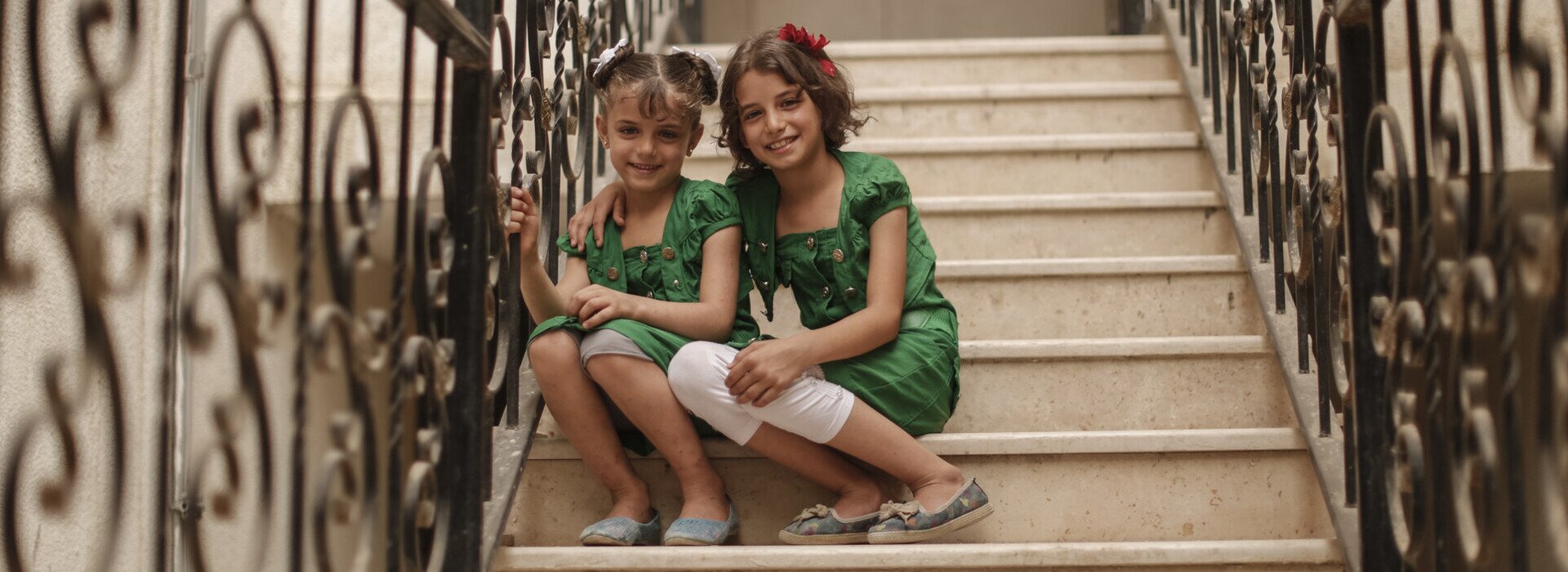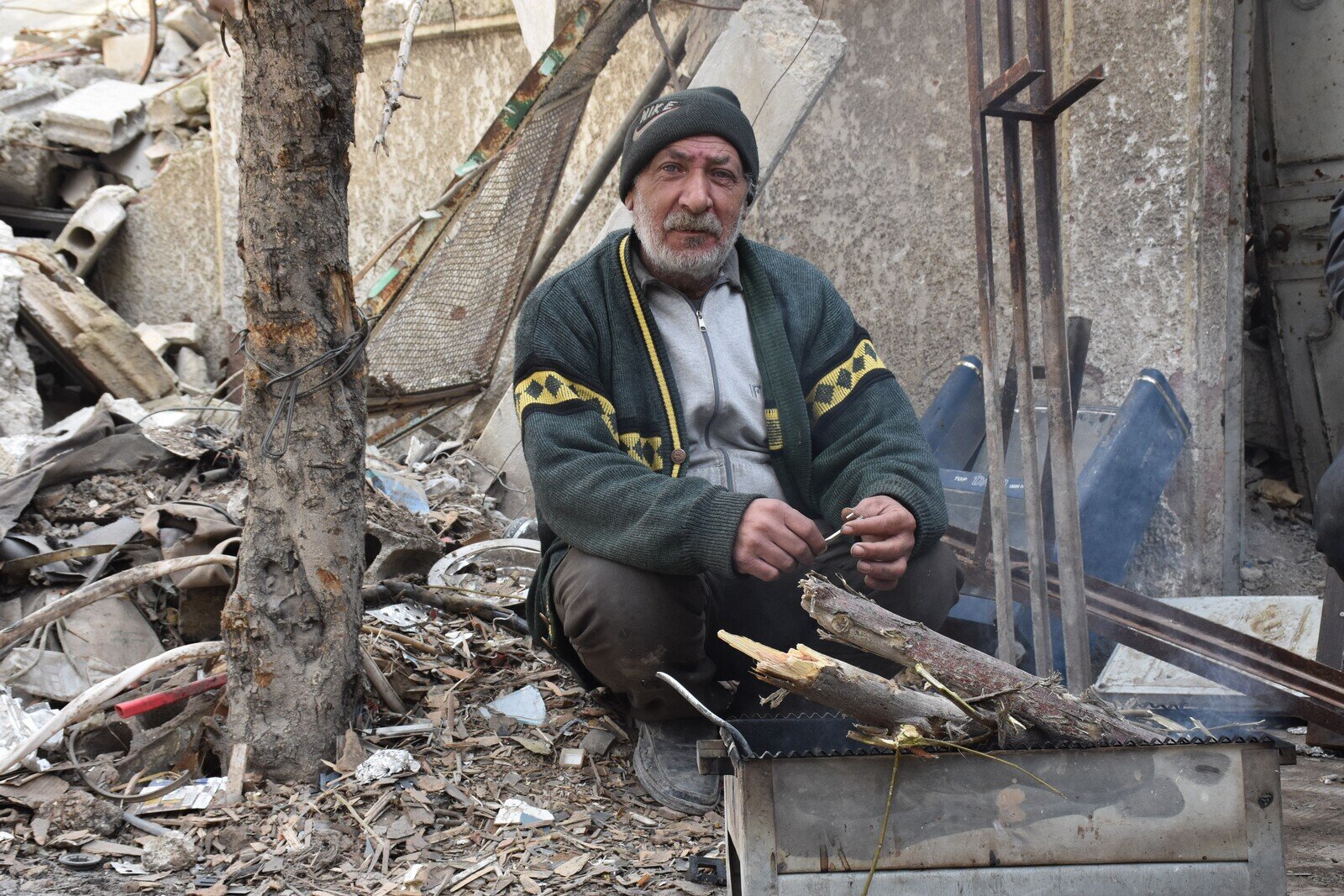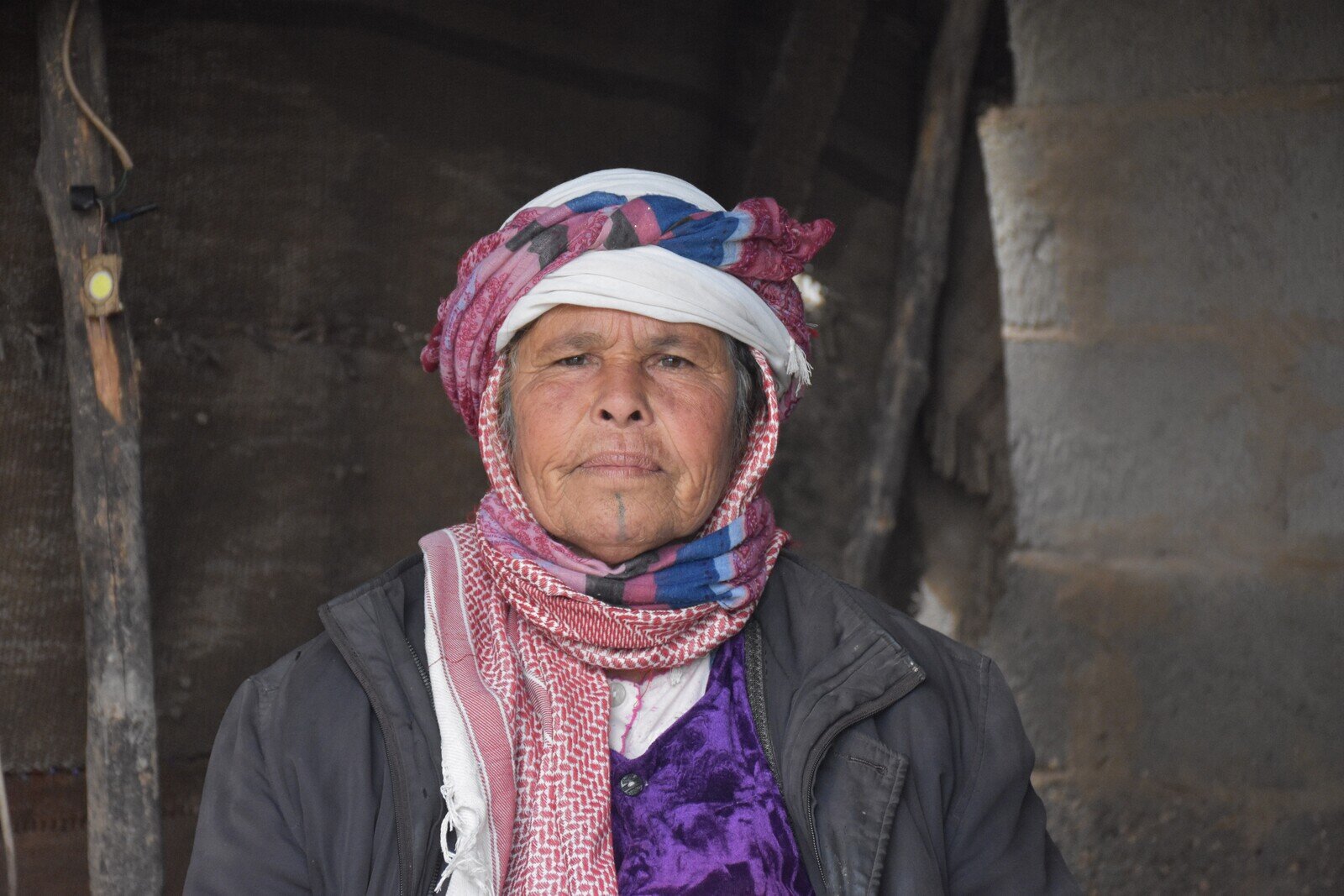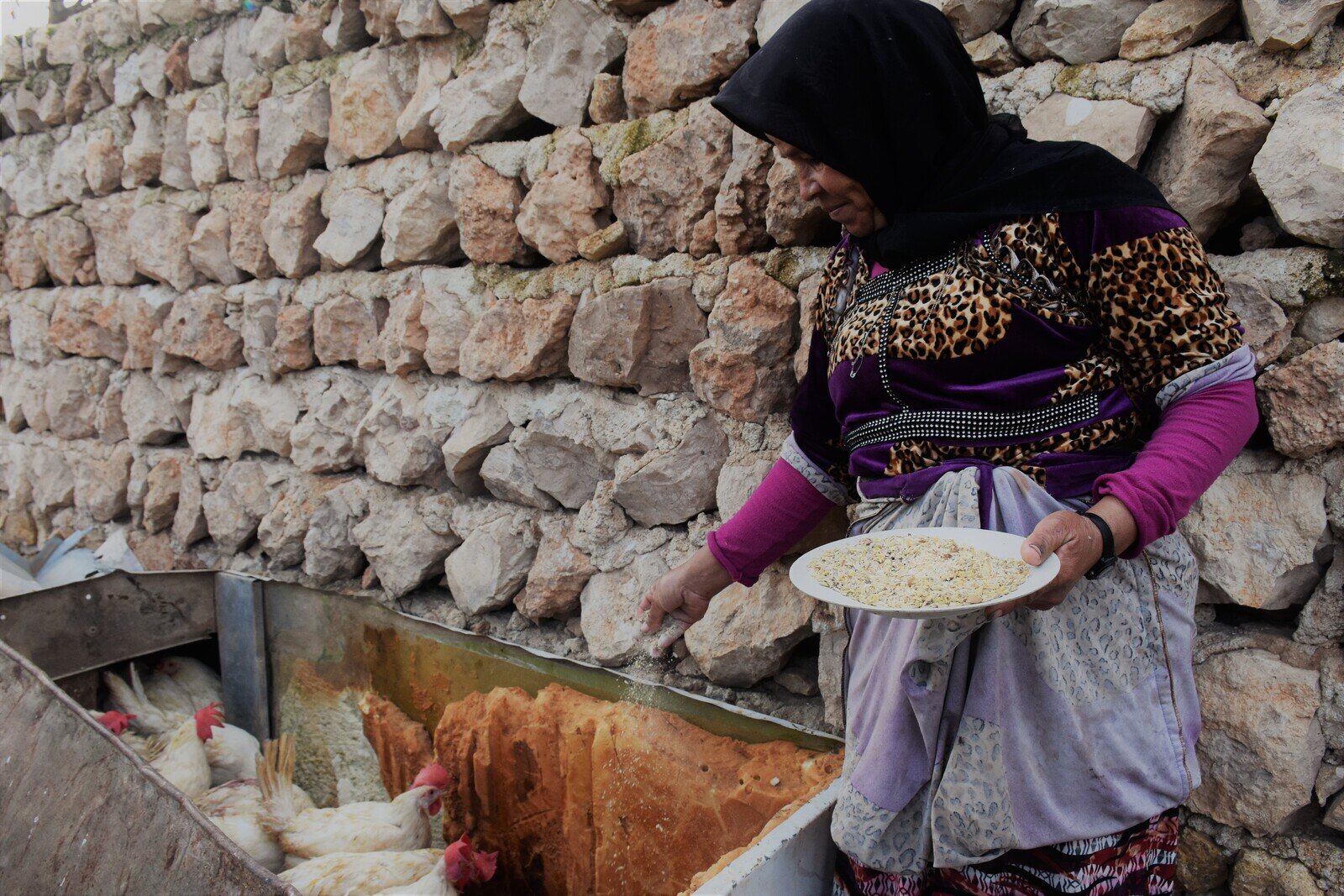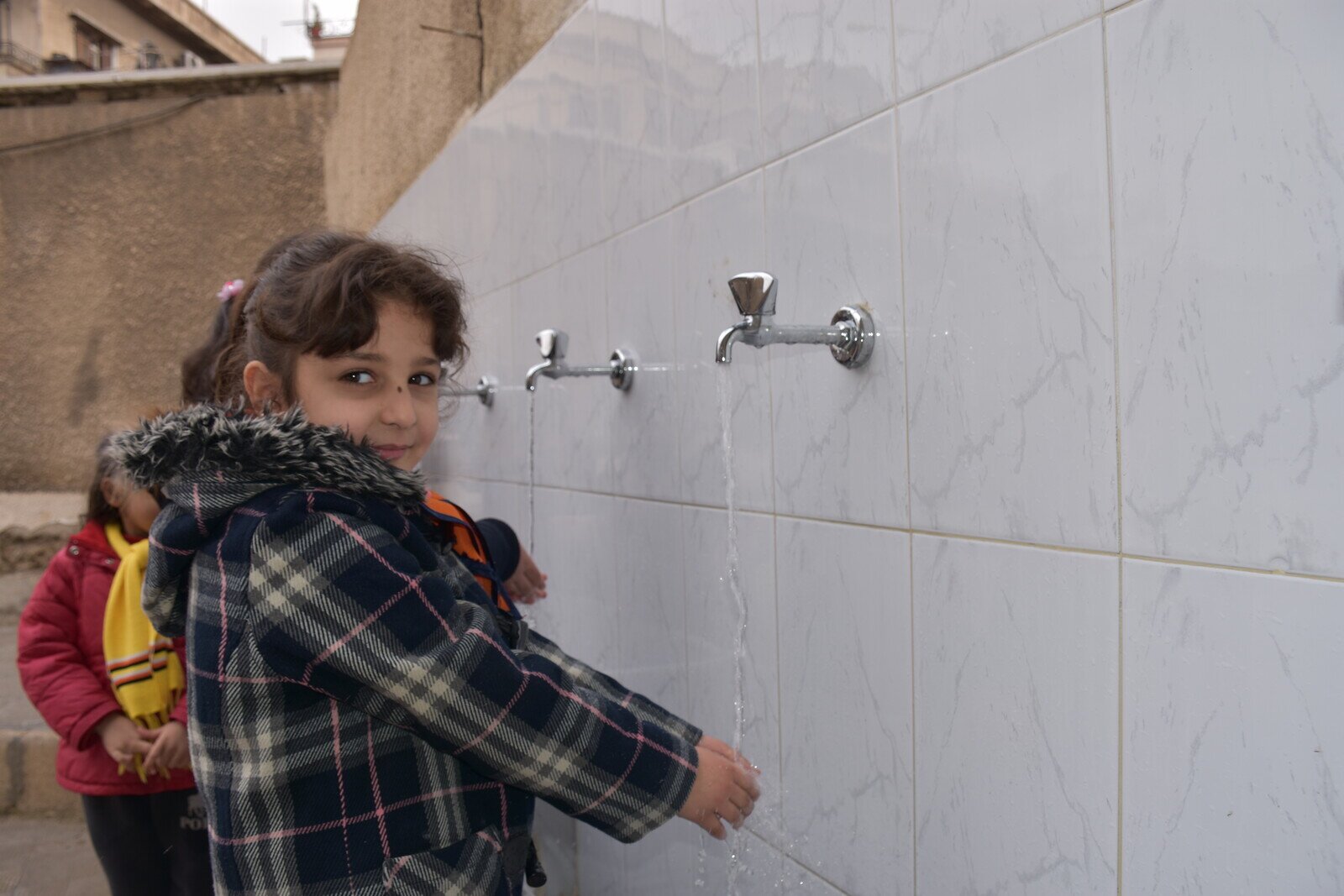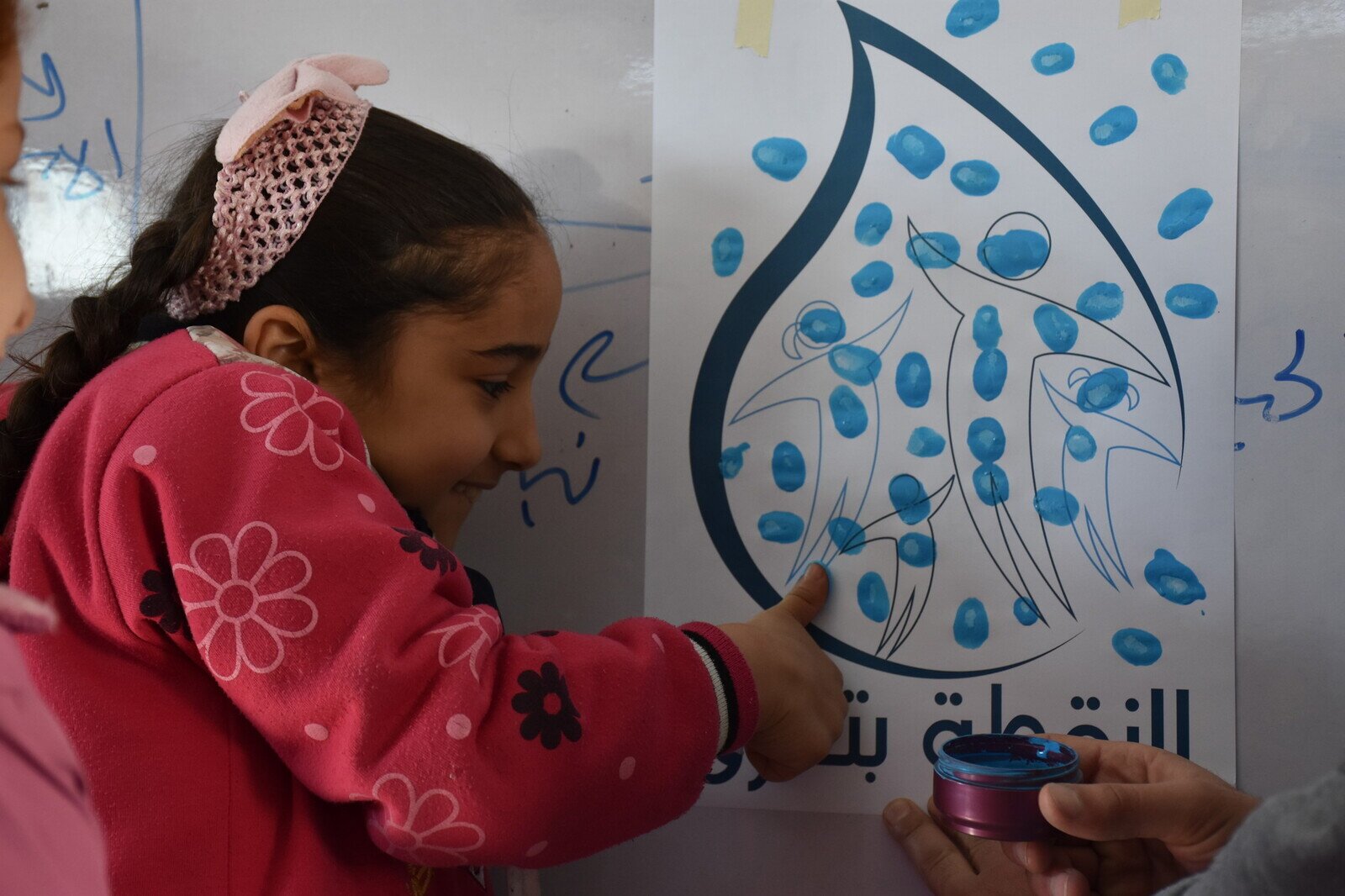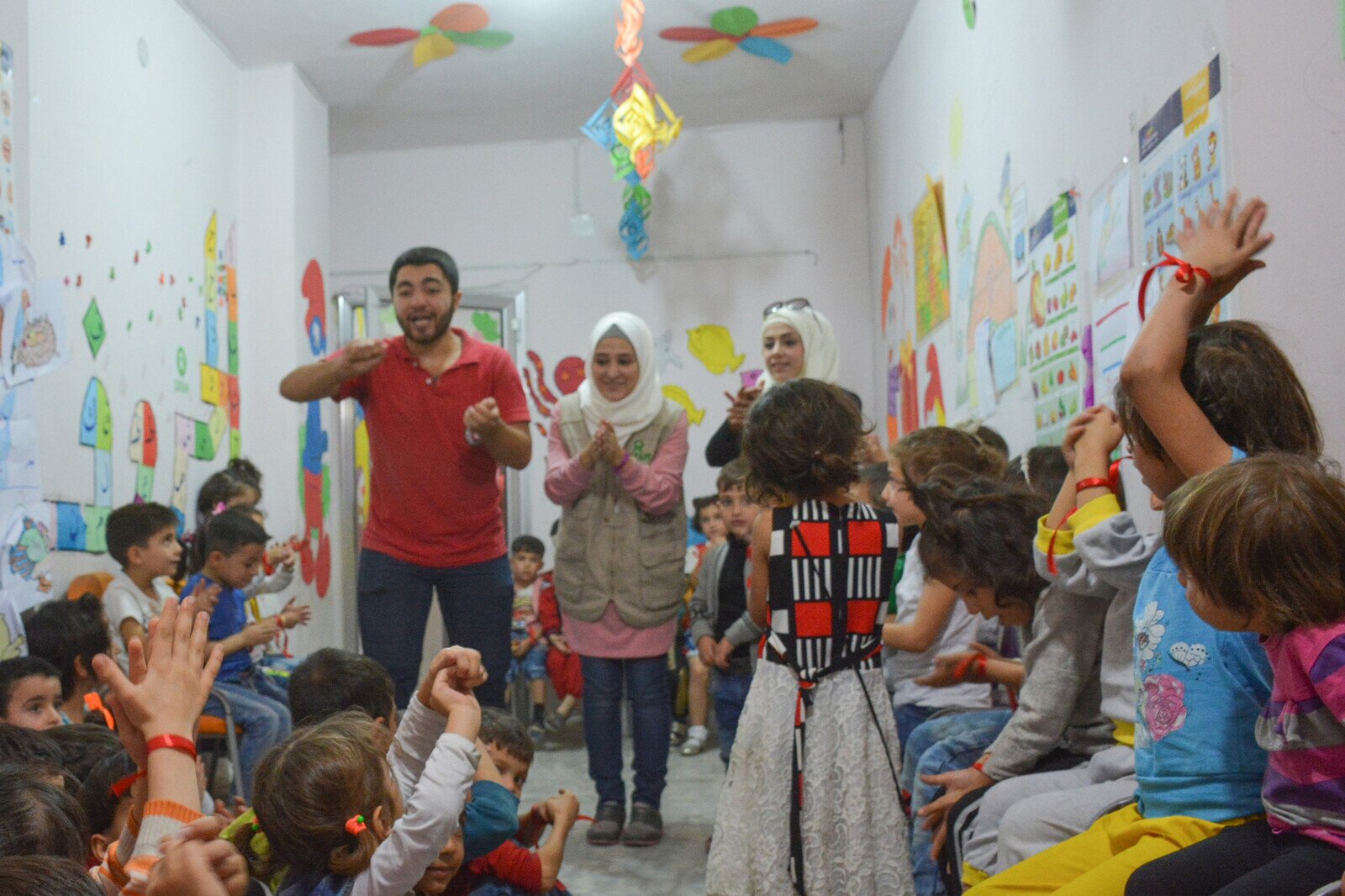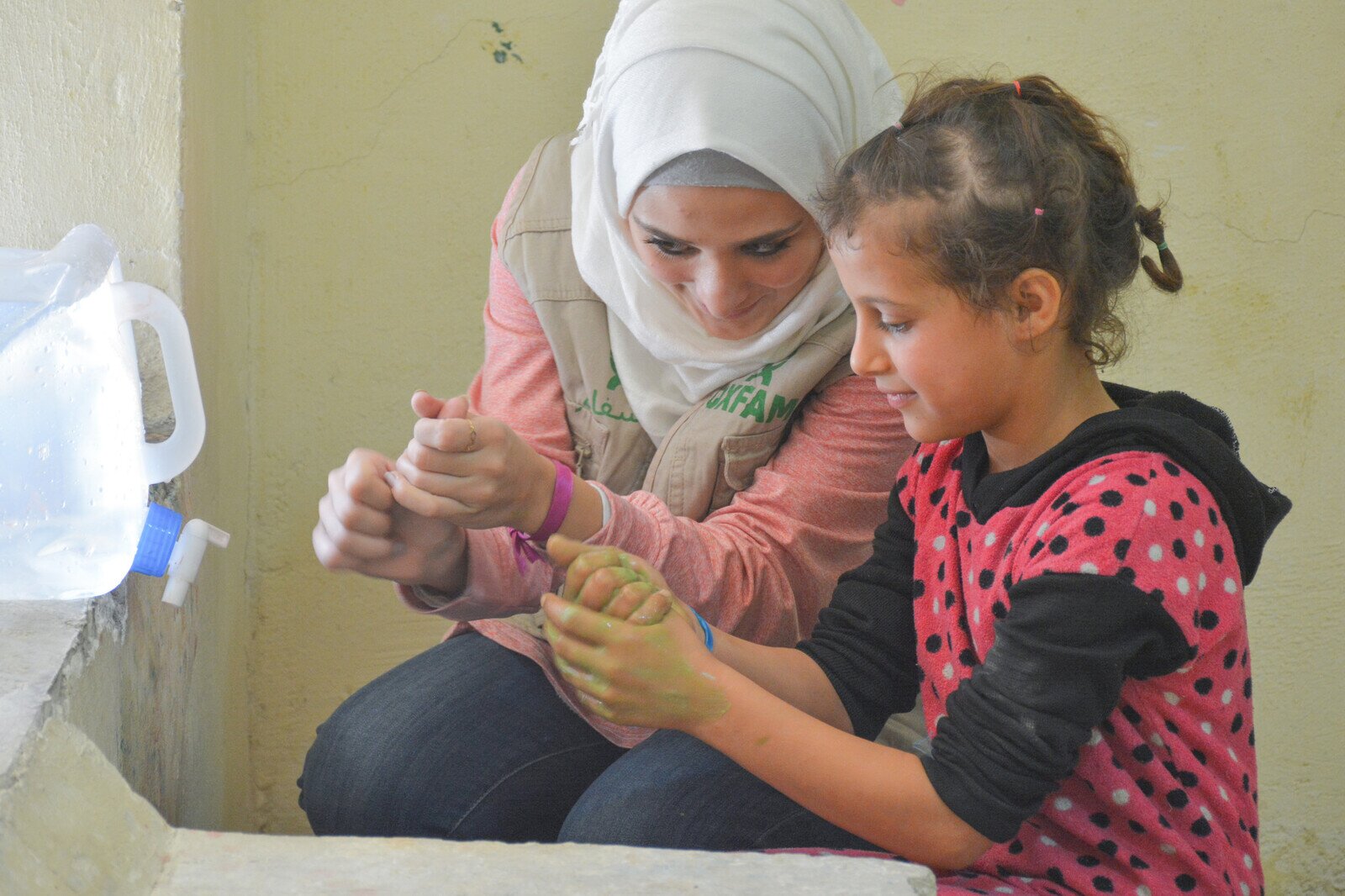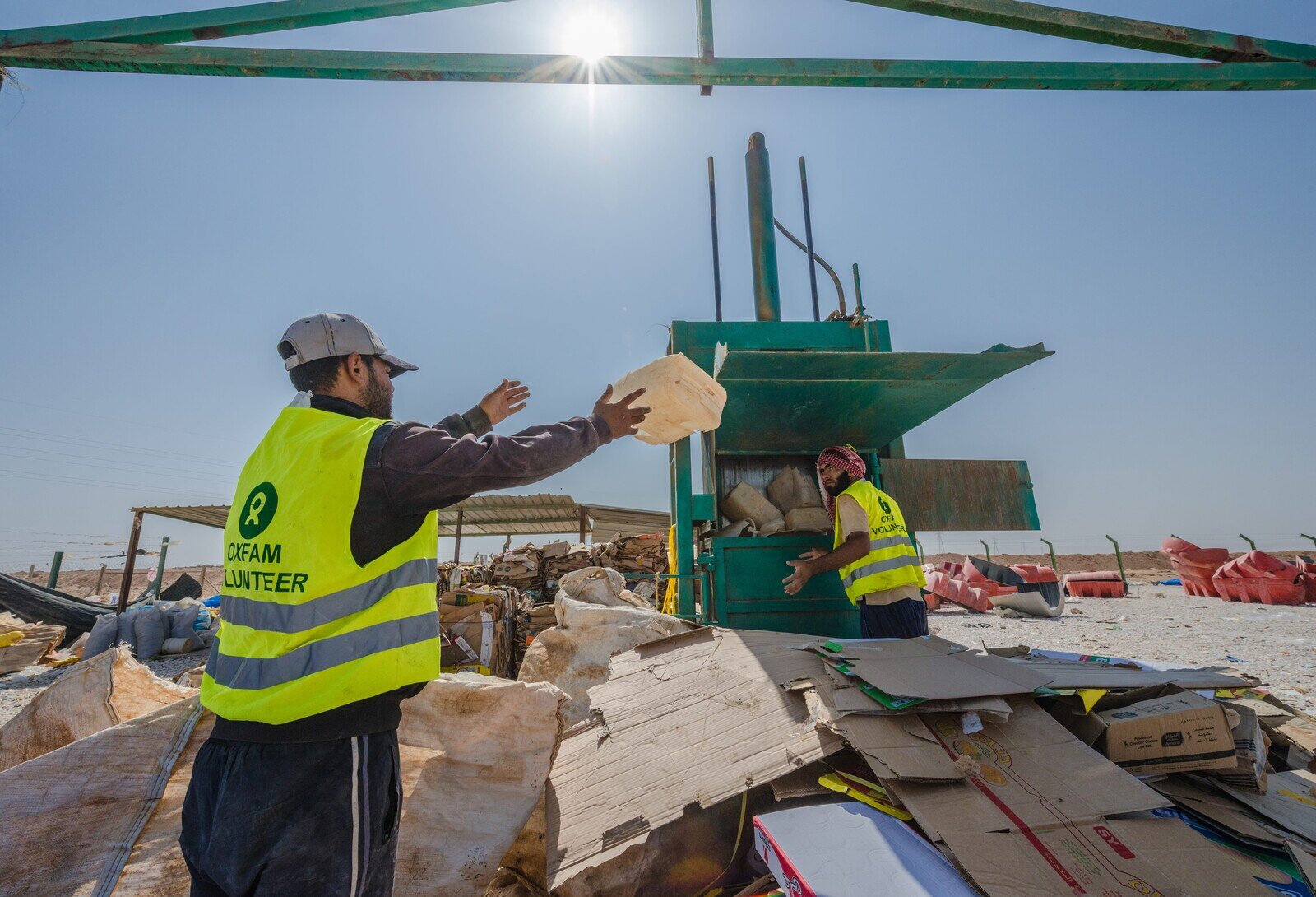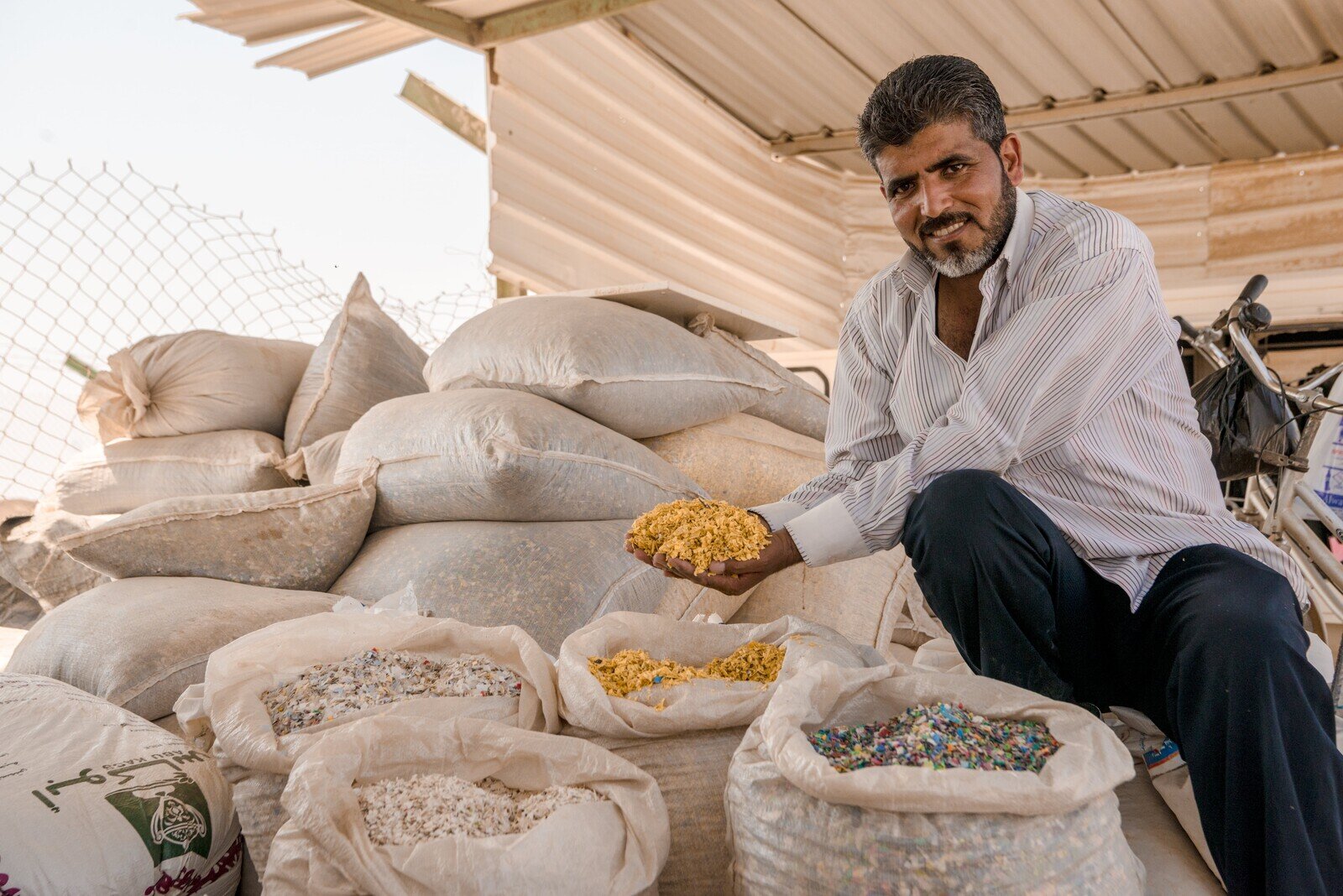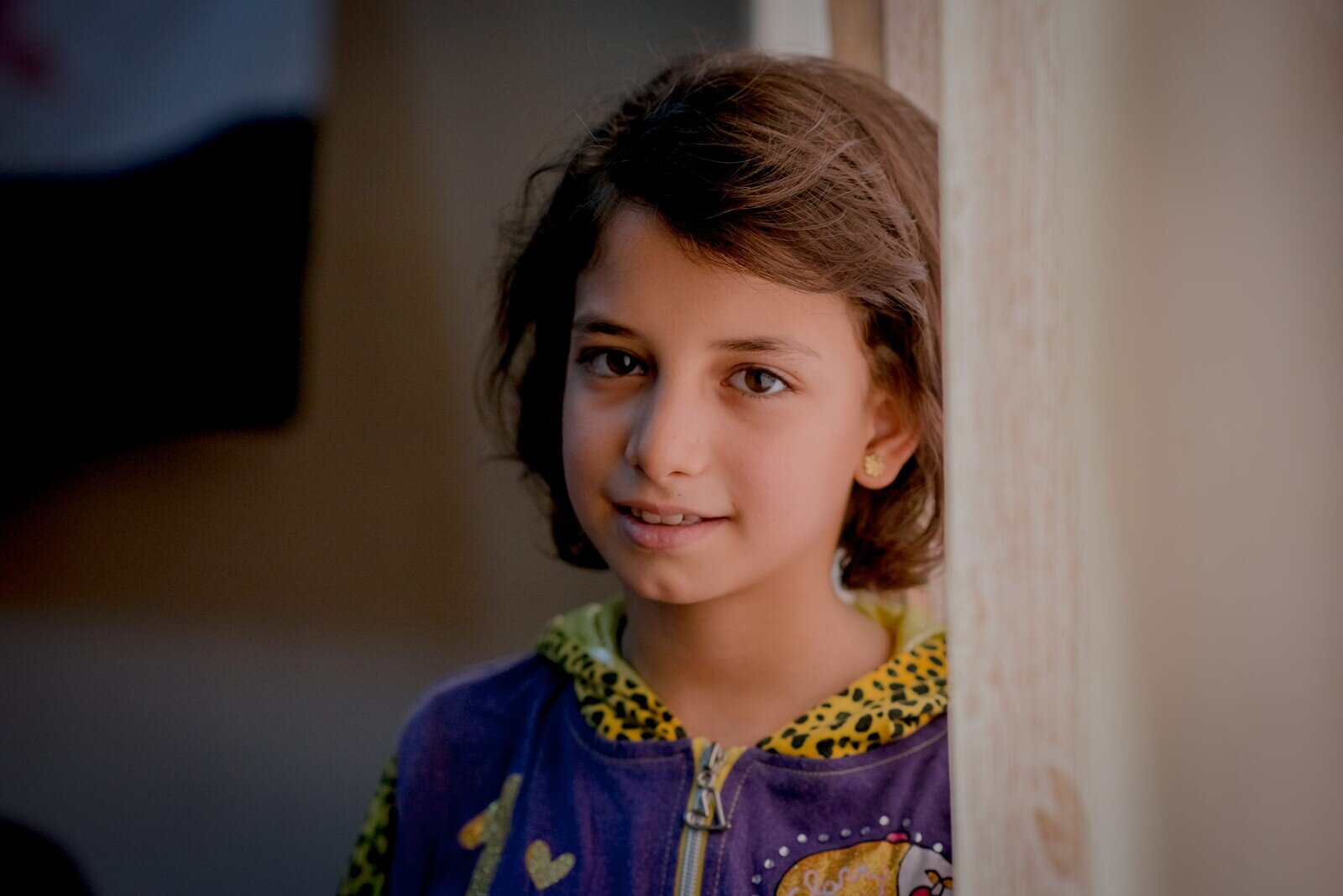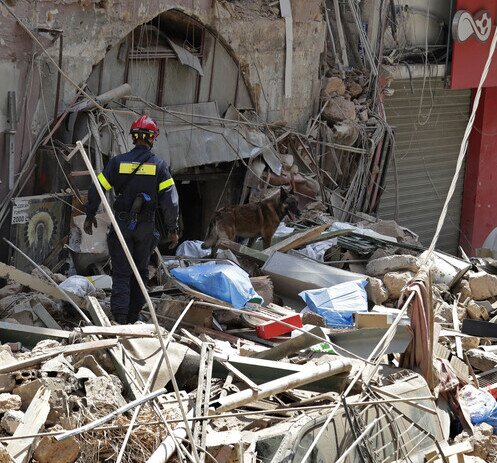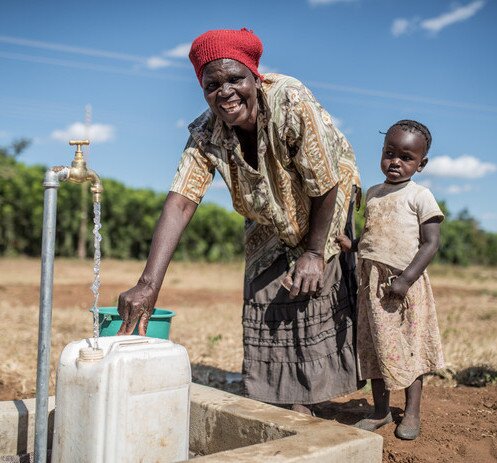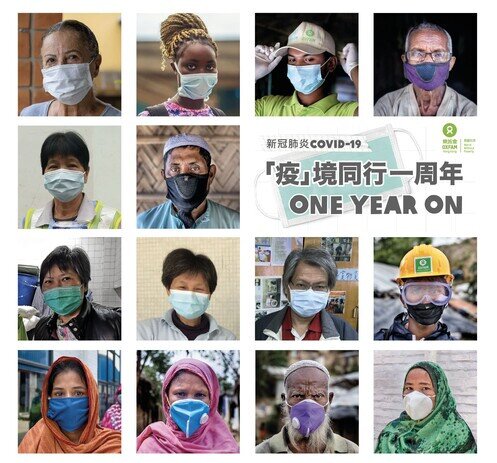A bullet grazed 11-year-old Sara’s* (right) skull when she fled from Syria to Jordan with her family. She now lives in Zarqa, in Jordan. *Some names have been changed (Photo: Sam Tarling / Oxfam)
Updated on 25 March 2020
Years of brutal fighting have devastated Syria, a middle-income country that was a thriving before the start of the conflict in March 2011. Since then, hundreds of thousands of people have lost their lives as a result of the conflict. More than 12 million people have fled their homes, many more than once. Schools, hospitals and homes have been destroyed. And now, four out of five Syrians inside Syria live in poverty.
Over the past few years, in Syria, Jordan, and Lebanon, we have been bringing lifesaving clean water, sanitation, and vital support to over 2 million people who have lost everything. Oxfam Hong Kong allocated HK$2.76 million between December 2013 and September 2017 to respond to this emergency.
The situation
- According to the UN, 12.2 million Syrians have fled conflict in Syria, which is more than half of the country’s pre-war population
- 11.7 million people inside Syria are in need of humanitarian assistance, of which 6.2 million have had to flee their homes in Syria – many several times
- 5.6 million people have fled the country, with the majority seeking refuge in neighbouring countries such as Lebanon, where one-sixth of the population are now Syrian refugees
- Over 80 per cent of refugees live outside camps in Jordan and 70 per cent of refugees in Lebanon live below the poverty line
- The number of Syrians in Turkey is estimated at over 3.5 million people, accounting for the largest number of Syrian refugees worldwide
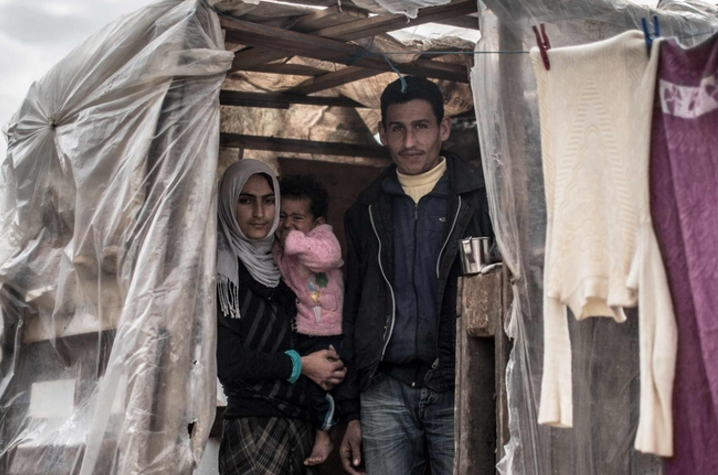
Behind the number of refugees and death toll are stories of real people. 5 years on, we spoke with Syrian refugees about objects they carried with them that they treasure.
read why these objects are so important to them & how they connect us all
Oxfam's response
Oxfam’s response programme has been implemented by Oxfam Great Britain. The programme countries include Lebanon, Jordan and Syria. In Turkey, Oxfam KEDV is working to create employment and business opportunities for low-income refugees and host communities.
Syria
Oxfam Great Britain has had an office inside Syria since July 2013, responding alongside other agencies to the urgent need for clean water. An estimated 35 per cent of water treatment plants in Syria have been damaged during the conflict and there are concerns over water contamination.
We have been working primarily to make sure people have enough clean water, and are able to keep themselves clean and healthy. The Suleiman Al-Halabi water pumping station is the main water source for Aleppo, and we are committed to keeping the generator, which we previously installed, operational. Water pumped from here reaches people across conflict lines. We also installed a large generator in Aleppo to increase the amount of water that is delivered to the 1.5 million people living there. In Eastern Ghouta and elsewhere, Oxfam is working to improve waste management systems and involving the community in their design to help prevent the spread of diseases. Our teams are also working in schools and with community groups to improve personal hygiene, and are working specifically with women.
We are currently working in eight of Syria’s fourteen governorates. We work with communities to prevent the spread of diseases by promoting good hygiene practices in schools and by training local community volunteers. We distribute food where needed and support farmers to grow food and make a living through training and cash (unconditional aid provided by the organisation for people who need it the most). The security situation continues to make operations very challenging.
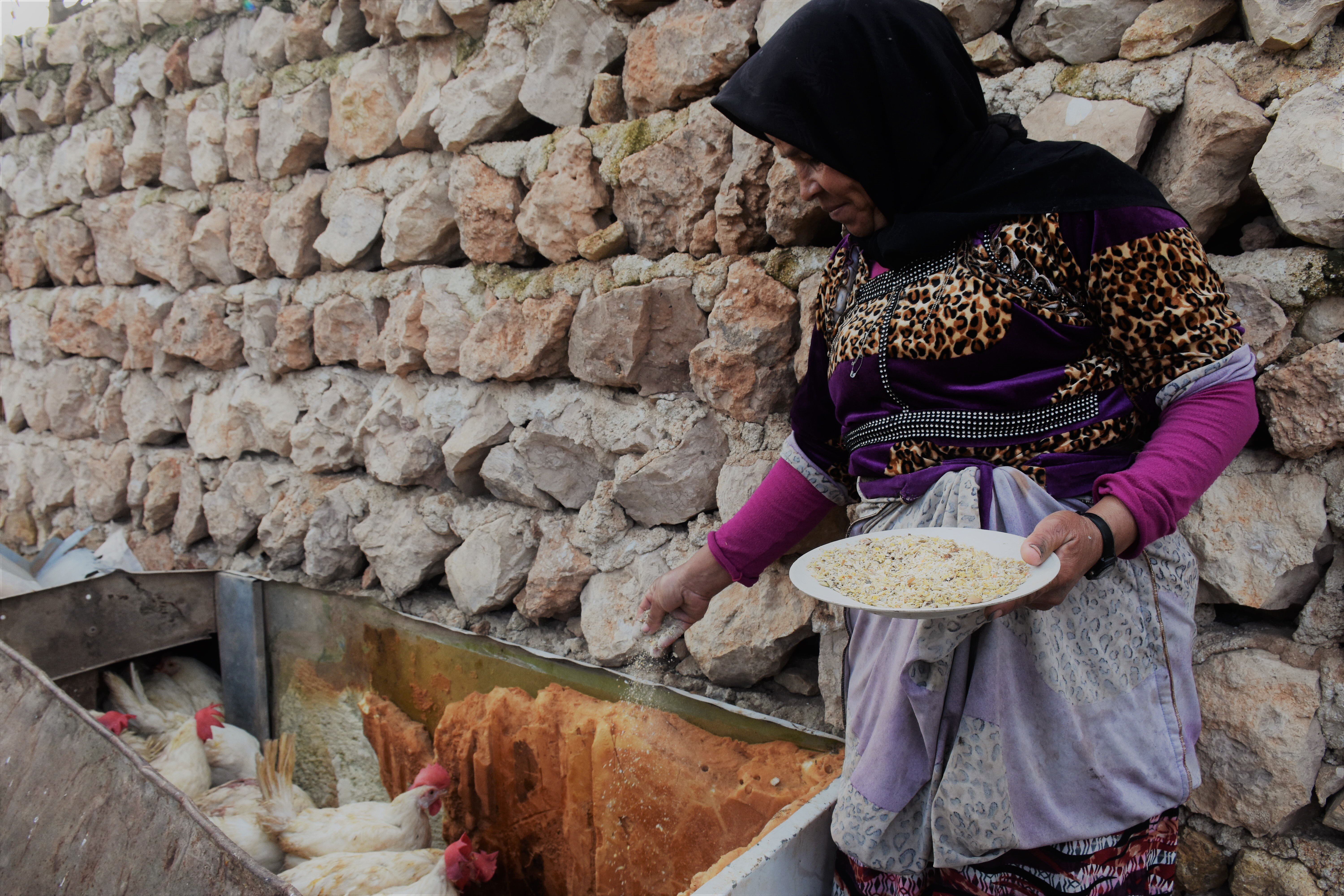
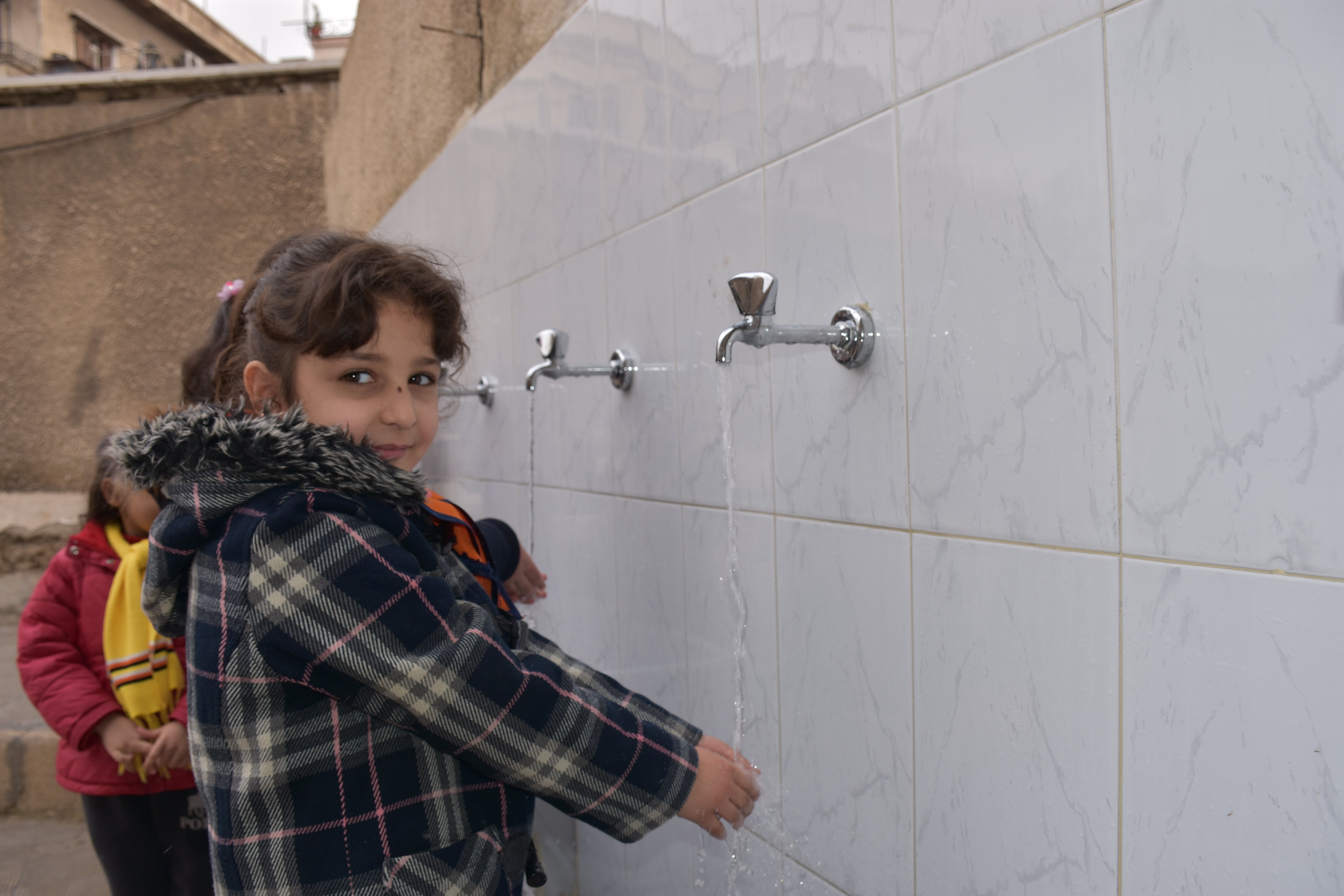
Lebanon
The impact of the wider Syria crisis on Lebanon has been massive - a 30 per cent population increase means every area of life is under pressure, with schools, hospitals, housing and businesses all struggling to cope. We work both directly with refugees themselves, and with communities hosting refugees to address common challenges such as access to water and jobs. We are helping families get the information they need about their legal and human rights, and connecting them to medical, legal and support services. Oxfam has reached more than 250,000 vulnerable people in Lebanon. We have been:
- Distributing hygiene kits, offering hygiene promotion and awareness sessions, and distributing household, communal and municipal waste bins
- Building and repairing over 1,100 toilets, ensuring that each is shared by no more than 20 people
- Installing over 720 water tanks in communal areas of the refugee camps and informal settlements
- Delivering water through water trucking, providing refugees with clean water for drinking, cooking and washing
- Constructing or repairing 70 shared bathing facilities, and providing families with jerry cans and water storage containers
Jordan
Oxfam is working in Za’atari refugee camp, Jordan's fourth largest 'city', to address water needs among other things. We worked with partners organisations to construct a water network throughout the camp that can address the needs of all 80,000 people who live there.
Oxfam is focusing its work in the country on three of Za'atari's 12 districts. We are also supervising water and sanitation, refuse management and the cleaning and maintenance of water networks, hygiene and sanitation blocks, and co-ordinating hygiene promotion activities. In Za'atari refugee camp, Oxfam has completed the construction of a drinking water network and waste water network. Private household toilets were also constructed for the most vulnerable households.
From waste to work: Recycling in Za'atari refugee camp
In host communities Oxfam is still providing humanitarian assistance to vulnerable refugees and Jordanians, and at the same time working on more long term development issues such as protection services, distribution of winterisation kits that allow vulnerable families to protect themselves from the harsh winters, water governance, economic opportunities and gender equality.
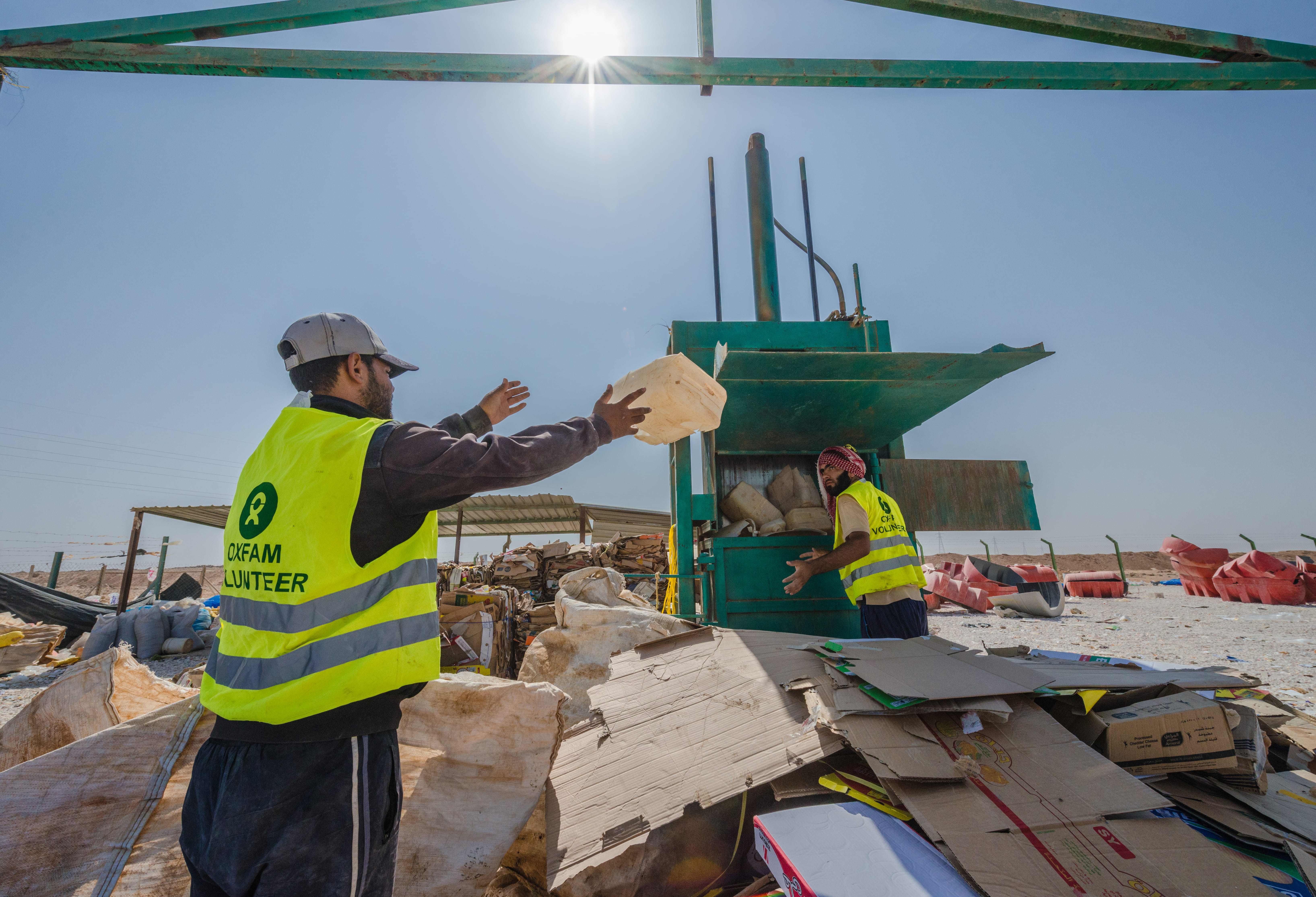
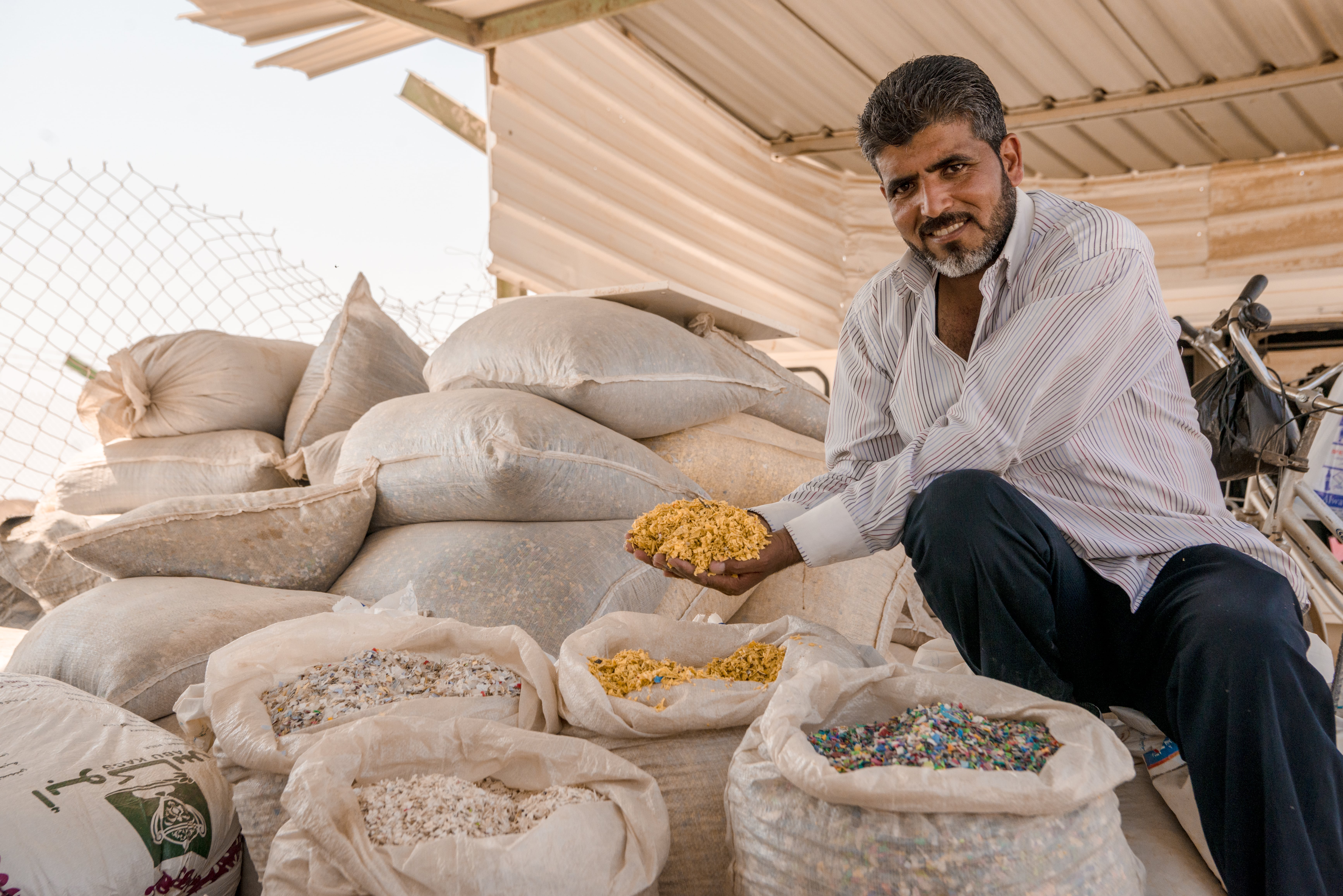
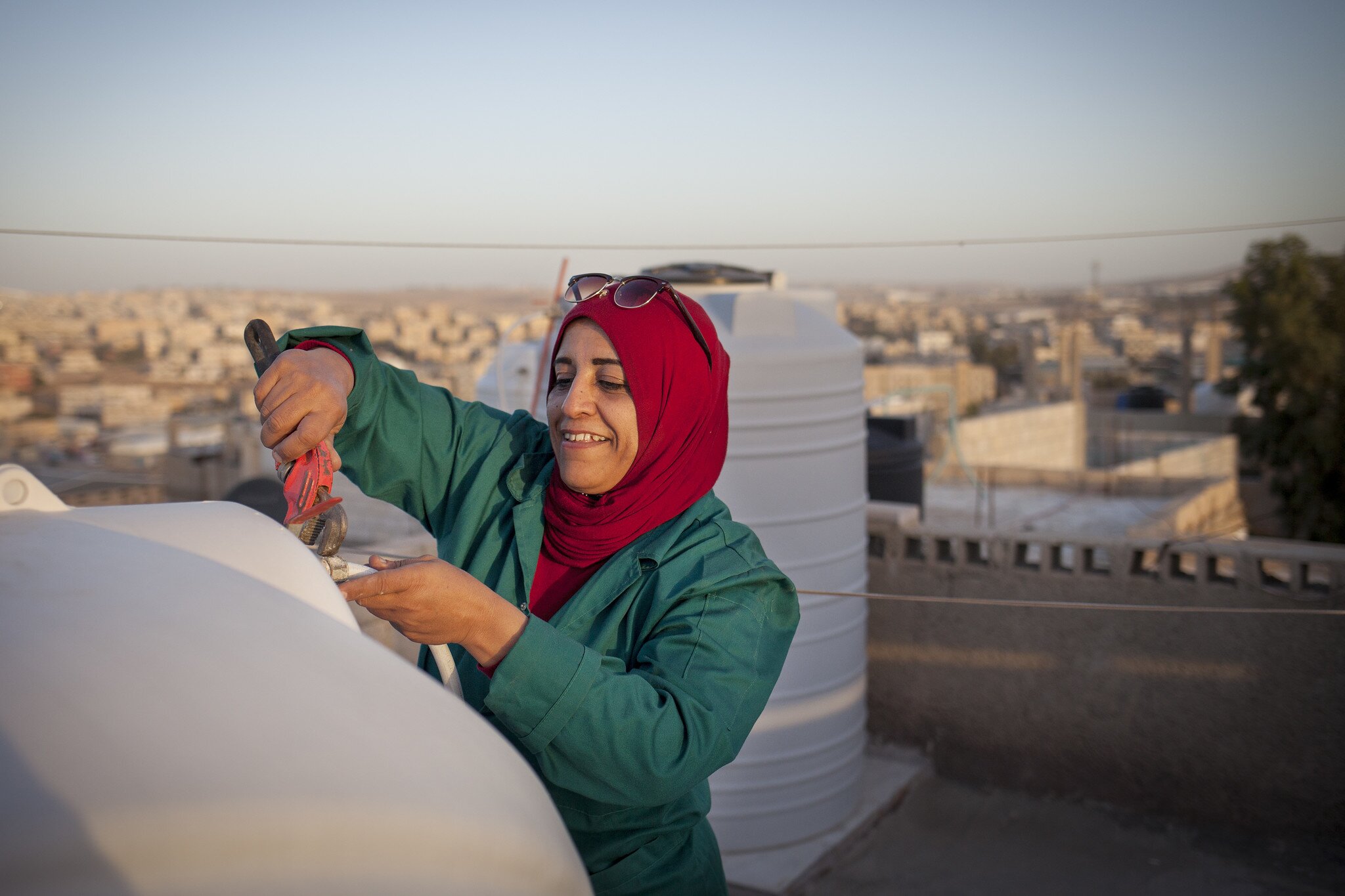
Turkey
In Turkey, KEDV (our affiliate in Turkey) is working together with partners to create employment and business opportunities for low-income refugee and host communities. It runs skills development and vocational training workshops, supports women in product development and marketing, and facilitates their access to finance. KEDV focuses on business models that have the potential to generate employment and business opportunities for women in both refugee and host communities in areas such as care work, agro-tourism and textile manufacturing. The provision of childcare services has also been a vital element in all of our initiatives. We provide access to playrooms, toy libraries and neighbourhood mothers’ schemes in collaboration with government institutions, UN agencies and other civil society organisations. Over the last three years, KEDV has worked tirelessly to promote social cohesion amongst Syrian refugee and host communities, and especially with women.
Oxfam's urgent call
Ensure a Ceasefire and Stop Arms Trading
Providing life-saving support to the millions of people affected by this devastating conflict is essential, but it is not enough. That is why we have been campaigning and advocating for an end to the fighting, and a sustainable and inclusive political solution since the beginning of the crisis. We will continue to call on all parties to the conflict to stop any arms transfers and guarantee humanitarian access and protection of civilians, whether inside Syria or in neighbouring countries.
In the face of this darkness ordinary Syrians are committing unseen acts of heroism every day. Inspired by their courage, we joined hands #WithSyria with over 130 organisations and individuals through the movement, and are doing all we can to help end the suffering and turn the lights back on. We are calling on world leaders to:
- Boost the humanitarian response - fully fund the aid response and ensure refugees seeking safety find asylum, including through increased resettlement for the most vulnerable;
- Stop attacks on civilians - send an unequivocal message to parties to the conflict that attacks on civilians and blocks to aid will not be tolerated; and
- Prioritise a political solution with human rights at the heart: a halt to the suffering can only be achieved if negotiations - whether local or international - include safeguards to ensure respect for international humanitarian and human rights law.
#WithSyria: Online petition | Facebook
International community needs to do much more to help Syrian refugees
According to the latest UNHCR figures, Jordan, Lebanon and Turkey are currently hosting over 650,000, 900,000 and 3.5 million Syrian refugees respectively. And Turkey has hosted the largest number of refugees worldwide for five consecutive years, while Lebanon has continued to host the largest number of refugees relative to its national population, where 1 in 6 people is a refugee. Jordan (where 1 in 14 people is a refugee) and Turkey (1 in 22) ranked second and third respectively.
In fact, countries in developed regions hosted 16 per cent of refugees, while one third of the global refugee population (6.7 million people) were in the Least Developed Countries. The international community must work to provide support to countries in the region hosting large numbers of refugees and uphold the principle that no refugee should be forced to return to a country where they may be subject to persecution. In particular, EU member states should urgently improve the dire situation in refugee camps and relocate unaccompanied or separated children and other vulnerable people to safe places under dignified conditions. We are also calling for rich states to commit to fully funding the Syria crisis response appeal to share the responsibility of supporting Syrian refugees in Turkey, and in other neighbouring countries, and to resettle 10 per cent of all registered Syrian refugees.

